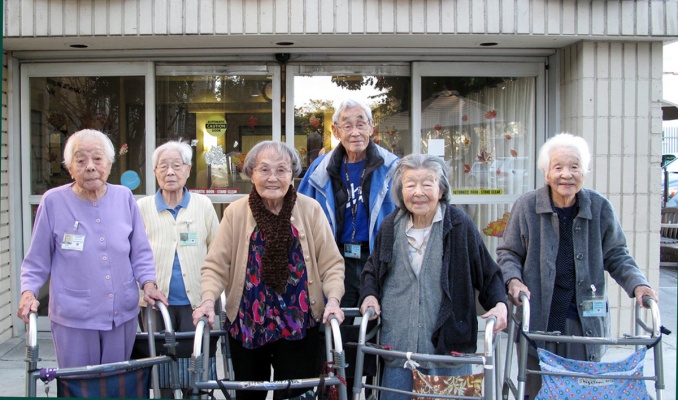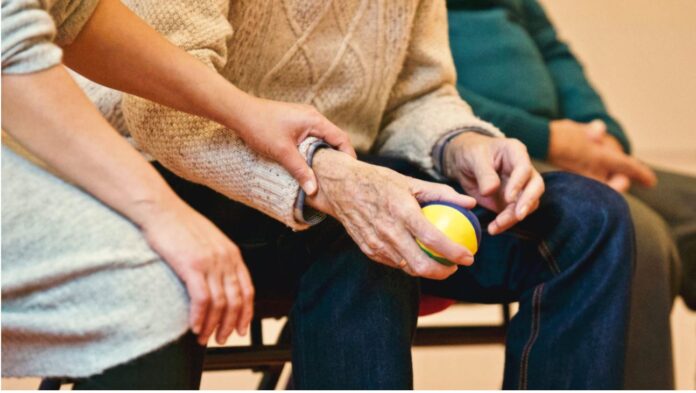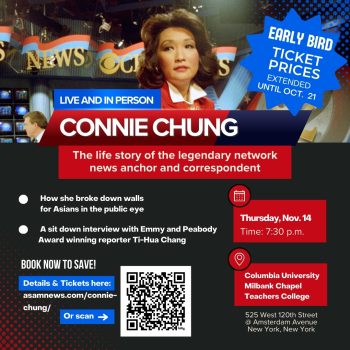By Melissa Young, AsAmNews Intern
Japanese Americans in Los Angeles County are rallying to save a group of senior health care facilities which provide bilingual and culturally sensitive services.
The four senior care facilities serving the Los Angeles Japanese community were previously managed by a nonprofit organization named Keiro. Keiro sold the facilities to for-profit real estate company Pacifica Companies in 2016, despite opposition from the Japanese and Japanese American community and members of Congress.
Mary Uyematsu Kao, a retired photojournalist and community activist, told AsAmNews that the Japanese American community had been donating money toward the senior care facilities and that Keiro sold the senior care facilities without their feedback.
“The community’s really upset about this because for years, the community poured in money into these facilities and a lot of people knew that they wanted to use them in the future, and then [the facilities] got sold without their being told,” Uyematsu Kao said.
As part of the sale, then-California attorney general Kamala Harris required that Pacifica continue to provide the same bilingual and bicultural services for at least five years. These included Japanese food, Japanese television, traditional Japanese activities such as ikebana, koto, origami and shigin, Japanese-language materials and celebration of Japanese holidays.
The conditions for sale expire February 2021.
Community members are worried that Pacifica will not provide bilingual and bicultural services to senior residents after February. According to an article in the Rafu Shimpo, there are currently 342 seniors total living in the facilities.
Uyematsu Kao told AsAmNews that Japanese-speaking and immigrant seniors would suffer the most without the bilingual services.
“A lot of people, if Japanese is their first language, forget their English,” Uyematsu Kao said. “In terms of elder care, communication is very important. It’s actually a lifeline being able to tell the nurse what’s wrong, how you’re feeling. So without those bilingual services, it’s going to be really harmful.”
The four facilities are Keiro Retirement Home (now Sakura Gardens), the Intermediate Care Facility (Now Sakura Intermediate Care Facility), the Keiro Nursing Home (now Kei-Ai Los Angeles Healthcare Center), and the South Bay Keiro Nursing Home (Now Kei-Ai South Bay Healthcare Center).
Community members are also organizing to oppose the conversion of one of the facilities into an apartment building.
In August, Pacifica submitted a proposal to the City of Los Angeles to convert the 90-bed Sakura Intermediate Care Facility into a 45-unit apartment complex and construct a 50-unit complex on the property. The Rafu Shimpo reports this plan would affect 68 senior residents and 78 staff caregivers.
Michael Toji, a community member whose mother resides at the Sakura Intermediate Care Facility, wrote in an op-ed that Pacifica did not tell the Japanese American community prior to submitting the proposal to convert the intermediate care facility into apartments.
“Both my mother and I are extremely troubled by the potential displacement of the current residents. Where will they, many of whom are in their 80s, 90s and even in their 100s, go? If they are forced to move, I am concerned about having them relocate during a pandemic, given that they are the most vulnerable among us for infection,” Toji wrote.
“And even after the pandemic settles with the upcoming vaccinations, there is no facility that she can afford to move into, not to mention a place where she can communicate her basic needs in Japanese to bilingual doctors and staff.”
Community members also voiced concern about gentrification displacing Japanese residents.
The Sakura Intermediate Care Facility is the only bilingual Japanese intermediate care facility in the U.S., according to U.S. Rep. Maxine Waters.
“The impacts of gentrification are quickly changing many of the neighborhoods in the Los Angeles region. These are the type of development decisions that hurt our communities the most because they displace longtime residents and eliminate valuable cultural landmarks,” Waters said at a Boyle Heights Neighborhood Council Planning and Land Use Committee meeting Sept. 10.

A petition organized by Koreisha Senior Care & Advocacy opposing the proposal had over 4,460 signatures at the time of publication.
“Pacifica’s proposal is solely financially motivated with no compassion or empathy toward Japanese American seniors in their 80s, 90s, and over 100 years of age,” the petition reads. “We strongly object to their proposal, which was filed with the City of Los Angeles without any notice to the Japanese American community. Our seniors in their twilight years deserve to be in a safe and affordable facility, and not face a severe abandonment and breakup of a trusted family they have built with each other, and with bilingual staff, volunteers and doctors.”
A group of community members called Save Our Seniors is circulating a second petition calling for the California attorney general to extend the conditions for sale.
The petition states that Pacifica raised the rent by 5 percent annually and 7 percent in 2020. It also states that bilingual and bicultural services were reduced, and lower-income residents were displaced when the number of Medi-Cal beds were decreased.
David Monkawa, a member of the community advisory board that monitors whether Pacifica is obeying the conditions for sale, told AsAmNews, “They (Pacifica) weren’t supposed to make any changes in the five years, but they made a lot of changes. That’s part of the reason why we’re saying that it needs to be extended, because the five years of promises were broken.”
Monkawa added that due to the COVID-19 pandemic and lockdown, the senior residents have not been enjoying the same conditions they were promised.
“They were promised five years of basically status quo. They didn’t get the status quo,” Monkawa said.
The petition reads, “There is no culturally sensitive intermediate care facility for the residents to transfer to. There is no dedicated culturally sensitive nursing home for Japanese Americans.”
Petition organizers plan to hold a press conference and present the petition to the CA attorney general’s office on Jan. 21 at the state building in downtown Los Angeles.
California Assemblyman Al Muratsuchi will introduce legislation to prevent senior care facilities from stopping or changing their services during COVID-19, but it is unclear what will happen to the senior care facilities after the pandemic.
Monkawa said that Pacifica has not informed the community of the company’s plans for the senior care facilities once the conditions for sale expire in February. He believes Pacifica’s proposal to turn the Sakura ICF into apartments was a “strong statement” indicating what the company plans to do with the facilities.
Pacifica has not responded to a request for comment from AsAmNews at the time of publication.
Access to culturally sensitive care for seniors will remain a concern for Asian Americans as the demographic’s elderly population continues to grow.
According to a report from the National Asian Pacific Center on Aging, the Asian elderly population had a 73 percent growth between 2000 and 2010, the highest percent growth among U.S. racial demographics. Sixty percent of Asian Americans and Pacific Islanders aged 65 and older have limited English, and 31 percent are linguistically isolated.
The statistics show that Asian senior citizens need linguistically appropriate services, according to the report.
“The plight of the Japanese Americans is basically a microcosm of the plight of all Asian old people in this country. We’re all going through the same thing,” Monkawa told AsAmNews.
AsAmNews has Asian America in its heart. We’re an all-volunteer effort of dedicated staff and interns. Check out our new Instagram account. Go to our Twitter feed and Facebook page for more content. Please consider interning, joining our staff, or making a financial contribution to support us.



